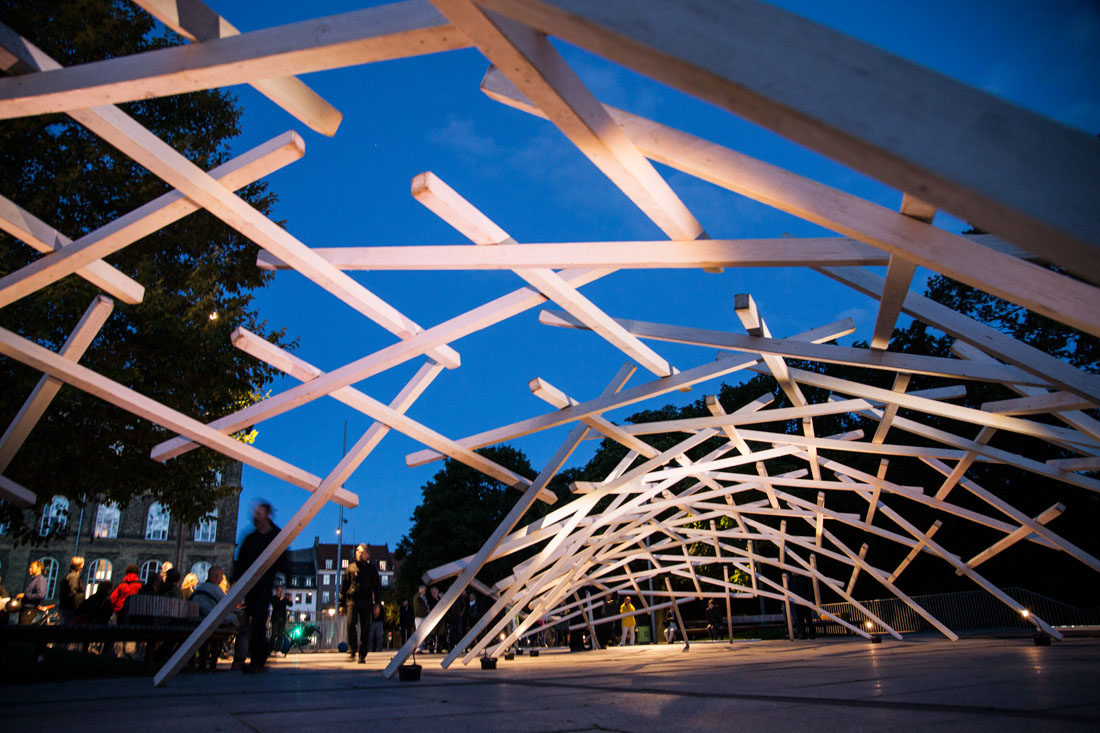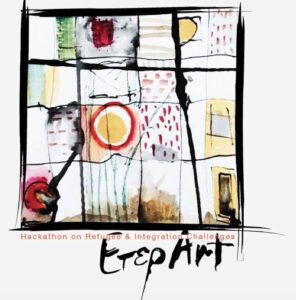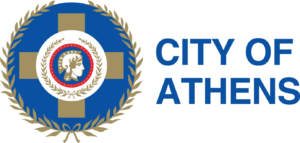Nordic Urban Lab 2020 – Studio Athens
TIME: 9, 10, 11 October 2020
PLACE: Online & Athens
CATEGORY: Seminar
The 4th Nordic Urban Lab took place in Athens as a Greek-Nordic dialogue on cities and the role of culture and the arts in healing, energizing and creating our cities and experiences and practices we can learn from.
Nordic Urban Lab is a platform for artists and designers working in the public realm, architects and planners interested in alternative integrated approaches to urban development/re-generation, researchers, activists and community representatives.
Nordic Urban Lab ATHENS 2020-21 is a two-step programme due to continued restrictions on international travel. First part took place online from Athens 9-11 October.
Scroll down to see video documentation
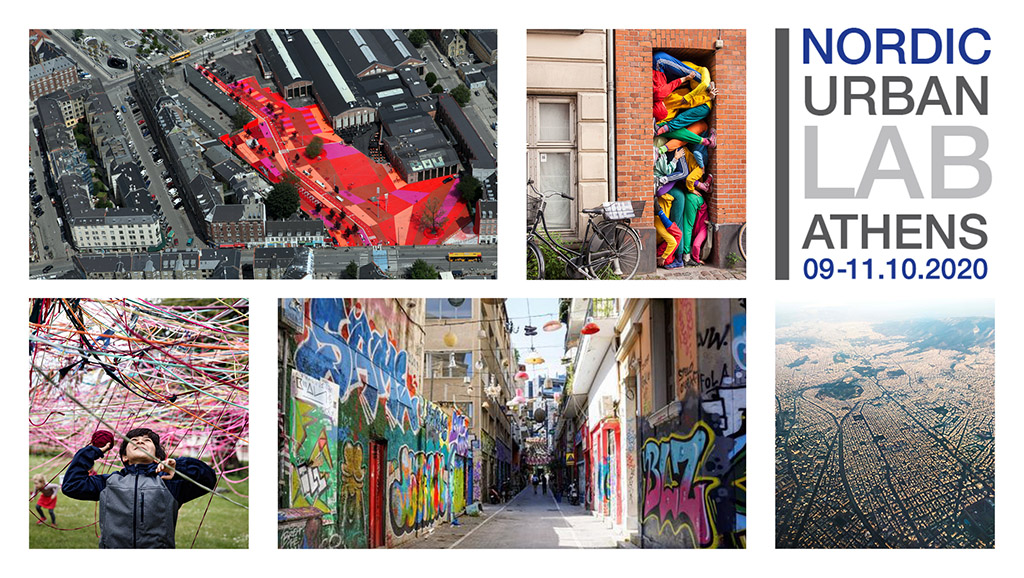
BACKGROUND
The Nordic Urban Lab is a forum for interdisciplinary perspectives around the issues of developing a more human and culturally rooted urban understanding and practice. After Nordic Labs in Copenhagen, Helsinki, Gothenburg and Kiel, NUL is now a loose network of some 400 architects, planners, anthropologists, designers, visual and performance artists, activists, researchers, community organisers and local authority representatives.
The Greek-Nordic NUL in Athens was structured as a dialogue on many of the current challenges of the urban reality seen from a cultural and artistic perspective.
In the evolving dialogue between “cities, citizens and culture”, the rebalancing and renegotiating of key aspects of our urban community are in many ways similar in all cities. But given local realities, there are highly individual experiences and challenges as well as different dynamics, protagonists ans initiatives in each city.
In defining the most relevant topics for the NUL Athens, we outlined 4 themes in collaboration with the many Athens based contacts we worked with around this project.
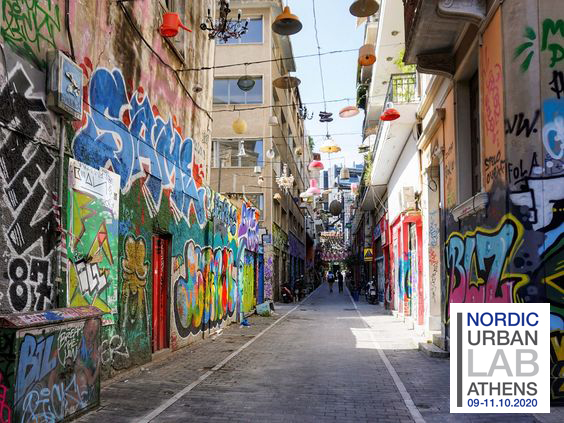
WHY ATHENS?
Many of us know Athens as a huge cultural treasure chest. In recent decades, Athens has moved into the centre of culture with major events such as the 2004 Olympic Games, which brought the city’s infrastructure into the new century, and mega-investments in major cultural centres and museums such as The National Museum of Contemporary Art, which has, however, been closed for long periods due to lack of public funding.
This dilemma about frameworks and iconic buildings in contrast to the working conditions for artists and arts institutions is obvious. This was included in the theme for Dokumenta, which in 2017 symbolically relocated to Athens with the slogan “Learning from Athens”. It created an extensive critical debate about the legitimacy of art in challenging situations, where the aftermath of Europe’s greatest economic meltdown is still haunting, and where the handling of the refugee situation continuously creates debate.
The city’s creative forces are seeking radical solutions. A new generation of artists, activists and urbanists with enormous energy leaves clear traces in the many districts with new common, socio-cultural platforms, temporary galleries, etc. in the search for an alternative way. Athens is complex, overwhelming and without borders.
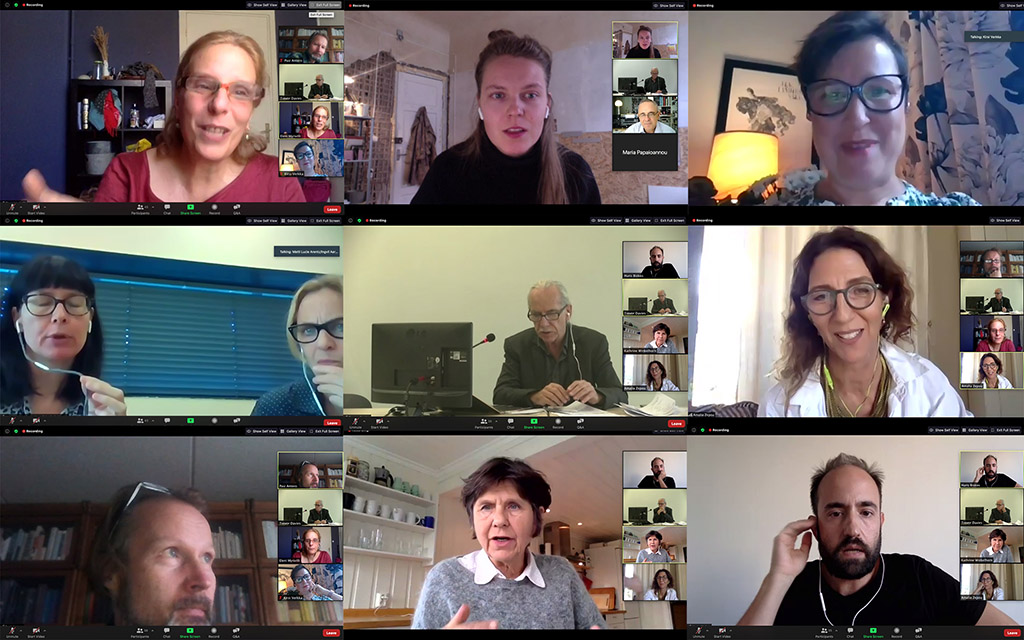 DOCUMENTATION
DOCUMENTATION
THEME 1: CULTURE AND THE CITY-PERSPECTIVES
The opening session took the form of an overview as an urban critique of the planning and management of contemporary city and urban society as the given context. It touched on the signs of a growing understanding of the need for a socially and culturally based urban perspective. This goes one step further than event-based attractions and iconic architecture alone, and is also rooted in our relationship with the city on individual and community levels, the networked city and the creative city, which offer dynamic and relational models. We also looked at the notion of cultural planning.
NORDIC KEYNOTES
Ari-Veikko Anttiroiko (FI) / see video
Professor, University of Tampere. Recent books include New Urban Management 2011, The Rise of Participatory Innovation Platforms in Finnish Cites 2016, Wellness City 2018. Anttiroiko specialises in urban dynamics in a global context and related to the culture-urban dichotomy.
Magdalena Malm (SE) / see video
Swedish Ministry of Culture, former Director of Swedish Public Art Agency 2012-2020, the most well developed public platform for public art in the Nordic countries, pushing the boundaries for art in public space to take on social, urban and cultural issues.
Tina Saaby (DK) / see video
Architect, Chief City Architect of Gladsaxe Council (2020-) and former City Architect of Copenhagen 2011-2019. Saaby focused on the key role of public space in relation to changing the identity, social inclusion and urban dynamics of the contemporary city.
GREEK KEYNOTES
Μonica Tsiliberdi / see video
Head of the Directorate for the Development of Contemporary Creation, Hellenic Ministry of Culture and Sports. Opening remarks on national policies and strategies in the context of current challenges and agendas.
Poka-Yio / see video
Artist and curator, co-founder and director of Athens Biennale on the role of the Biennale as a series of investigatory programmes relating to significant themes and challenges.
Andreas Giacumacatos / see video
Professor of Architecture, Athens School of Fine Arts, focused on critical observations on the aesthetic character and syntax structure of the modern metropolis, which in many ways could be defined as a non-city.
Panayotis Tournikiotis / see video
Dean of School of Architecture, Professor of Architectural theory and the Director of the History and Theory Laboratory at the NTUA – a presentation to focus on the place between building and the urban space as a connector in the city.
Maria Papaioannou / see video
Arts and culture officer at British Council, Athens, presented key solutions from the report “Athens Resilient city through culture” 2018.
THEME 2 – NEW DEMOCRATIC MODELS, CITIZEN ENGAGEMENT AND PARTICIPATION
This session focused on how cities are looking to changing notions of citizenship. The question of the right to the city is the starting point for how to open up formal, representative democratic frameworks to include far more and question how power sharing in cities is taking place. Formal representative democracy is being replaced by action-based and participatory models and also by a surge of do-it-yourself initiatives and resource sharing on micro-scales outside the formal frameworks driven by activism and artivism and a sense of shared responsibility.
The sub theme of inclusive cities was included here. The theme of inclusion is becoming more and more of a concern as social divisions are often compounding. Marginalization thrives in market-driven urbanism, and the public sector is challenged to define new models of how to “include” and how to support higher levels of social innovation and social sustainability.
NORDIC KEYNOTES
Matti Lucie Arentz (NO) & Ingvil Aarholt Hegna (NO) / see video
Matti: Design and Architecture Norway, Artist and Senior Advisor Architecture and Urban Planning
Ingvil: Design and Architecture Norway, Architect and Senior Advisor Architecture and Urban Planning
They presented “Citizen`s Tracks – a National Tool for Participation in Urban Planning”.
Kirsi Verkka (FI) / see video
Head of Helsinki Public Participation Unit, City of Helsinki, presented Helsinki’s strategy of citizens’ involvement and co-creation.
Pasi Mäenpää (FI) / see video
Professor, University of Helsinki, presented a unique research programme “urban civic activism as resources for the metropolis – solutions for the governance of self-organising urban communities”.
GREEK KEYNOTES
Amalia Zepou / see video
Vice mayor for civil society and innovation 2014-19 at the Municipality of Athens. In 2013, she created an award-winning civil society platform “synAthina” which later helped establish a sector for social innovation in the Athens administration. She is presently conducting a senior visiting appointment at LSE Cities with a Bloomberg Philanthropies fellowship.
Haris Biskos / see video
Architect and urbanist, head of “synAthina” collective, founding member of the project “Curing the Limbo” aimed at creating supportive and sustainable frameworks for refugees in Athens.
THEME 3 – STRENGTHENING NEIGHBOURHOODS & COMMUNITIES
In many ways, the local has re-asserted itself as the building block of the city, the natural stage for urban transformation where questions of local identity, local resources and local narratives are key. This key perspective of re-focusing the urban narrative questions issues of identity and also of strengthening engagement based on “a sense of place” as something everyone contributes to. Artists and creatives can of course have immense impact and play a key role in the re-configuration of the everyday.
At the core of many of these strategies and approaches are the public space and the public realm. From having been seen as spaces between buildings, the public space is now often seen as the turning point to create new and common realities of/in the city. Opening the public space as “free space” is a key factor for cities to visitors and citizens alike, the new cultural “space” where identities can be renegotiated and new relations built.
NORDIC KEYNOTES
Alexandra Szymanska (PL) / see video
Director, Gdansk City Culture Centre, which has developed a pioneer role with an urban and cultural mandate to engage in challenged neighbourhoods.
Michail Galanakis (FI) / see video
Researcher with MA in Architecture, MA Design and Phd in spatial design, specializing in the urban space in an intercultural context which was the focus for his presentation.
GREEK KEYNOTES
Konstantinos-Alketas Oungrinis / see video
Director of the Transformable Intelligent Environments Laboratory (TIE Lab), Associate Professor, School of Architectural Engineering, Technical University of Crete.
Dimitris Kokkinakis / see video
Co-founder of Impact Hub Athens, a community of entrepreneurs and innovators who collaborate towards the development of sustainable business solutions.
Stavros Alifragkis & Panayotis Pangalos / see video
Αrchitects by training, researchers and educators in the fields of history and theory of architecture and the city. Since 2014, Panayotis’ Citylab initiative produces dialectical knowledge on the basis of collaborative work on different but intertwined aspects of architectural history, theory and criticism, architectural design, urban history, city planning and other visual and performing arts.
THEME 4 – ARTISTIC PRACTICE IN THE URBAN REALM
Artistic practice in the context of urban processes has been highly profiled increasingly since the 90s. The Cultural Capitals of Europe is just one of many interpretations of this approach. On a European level, the increasing cross-pollination between the performing arts, the visual arts, architecture and urbanism but also the potential of the digital has given a freedom of approach. This allows artists to work with methods that are often transgressing the realm of the arts and intruding into social and urban realities, often confronting and counterpointing reality and fiction but also offering an alternative with this cultural acupuncture approach. We looked at how these changing perspectives open up for a new contract between the arts and society revolving around the urban. Here, we sense the city in all its layered emotional reality.
NORDIC PRESENTATIONS
Kjell Caminha (SE) / see video
Lecturer in Fine Art, Gothenburg University, outlined artistic practices from ‘Public Art Research Report in the Nordic Countries’.
Christof Mayer (NO) / see video
Prof. APP/DAV Bergen School of Architecture, member of the iconic urban collective Raumlabor, Berlin, on curating alternative performative urban strategies.
Liva Kreislere (LV) / see video
Architect/Urbanist/Designer, currently advising the Baltic Interreg project ‘URBcultural planning’ from which she outlined and presented two examples of independent DIY urbanism initiatives in Riga.
Vivian Madsen (DK) / see video
Bureau Detours/Institute for X, based in Aarhus, the largest independent collective of alternative place makers in the Nordic countries, focusing on their interventionist approach.
Gry Worre Hallberg (DK) / see video
Artistic director of Sisters Hope (2007-), a performance collective based on the proposition of a “sensuos society” and with a radical transformative agenda and practice.
Karoline H. Larsen / Collective Strings (DK) / see video
Visual artist, working primarily in public space with participatory collective creative processes in both temporary and permanent art works.
Kenneth Balfelt (DK) / see video
Visual artist, working in socially conflictual contexts with inclusive art-driven processes, where fragile human relationships are key factors.
Maja Nydal Eriksen (DK) / see video
Visual artist & curator of 100% Foreign?, a three-year investigation into questions of multiple identities based on 250 interviews and staged photography in the public realm with former refugees.
GREEK PRESENTATIONS
Eva Kekou / see video
Art historian, cultural theorist and curator. She illustrated the cultural and art scene in the Mediterranean using the example of Athens as a case.
Xenia Kalpaktsoglou & Pegy Zali / see video
Curator and architect/artist accordingly, co-founding members Laboratory for the Urban Commons, Athens.
Maria-Thalia Carras / see video
Cofounder & codirector of locus athens & TAVROS.
Jenny Marketou / see video
Greek multidisciplinary artist, lecturer, and author noted for her interventions and technology-based projects (Athens-New York).
Filia Milidaki / see video
Curator of Eye’s Walk Digital Festival in Syros island, contemporary dancer and founder of Social Cooperative Enterprise “Cinesthesia”.
WALKING ATHENS / 11 OCTOBER
A series of walks and interventions in the public space with invited artists and cultural entrepreneurs introducing selected sites in Athens via their practice and observations of the city. The walks were live-streamed on facebook and can be watched on the links below.
Nikos Tranos / see video
Rector of Athens School of Fine Arts, a major figure in contemporary Greek art navigated Thodoris Tsatsos, Psychologist and Co-Founder of ‘Reading for the others’.
Mihalis Samolis / see video
Guide and seller of ‘shedia’ newspaper that supports homeless people.
Ftopea (Ilia Bebi) / see video
A flexible & transforming open platform of experimental architecture. European Architecture Students Assembly local contact.
UrbanDig Project (George Sahinis, Eirini Alexiou) / see video
A journey in space and time in UrbanDig Performances at Exarcheia and their footprint in the city.
Konstantina Douka / see video
PhD candidate in Urban and Regional Planning, National Technical University of Athens-Visitor researcher Università IUAV di Venezia – Co-founder Oculus,Association Urban Creativity for people, Friuli Venezia Giulia, Italy.
Konstantina Alexopoulou / see video
Performer – Masters Degree in Dance Theatre: The Body in Performance dal Trinity Laban, London.
Urban Layers / See video
(Polyna Xiradakis, Emmanuela Kyriakopoulou)
Community for the ‘survival’ of the thoughts ideas and anxieties of society depicted upon the city’s walls.
Alexandra Fyka Cultural manager & Eftychia Kiourtidou Αrtist / political scientist / see video
Plato’s Museum Design Team / see video
(Aggeliki Konstantinidi, Tina Zoubou, Evgenia Stavraki) Architects (1,2), Museologist (3), founders of DotsLinesStories
Recompulsive Behaviours (Myrto Sarma, Dimitra Trousa) / see video
Αrtist collective. Compulsively defending equal privileges, diversity and communal coexistence, they combine art production, activism, education and research towards social justice and the reclamation of the commons.
Victoria Square Project (Niovi Zarampouka-Chatzimanou, Aggelos Kostamparis) / see video
Architect & Director of Victoria Square Project (1) and Community Liaison of Victoria Square Project (2)
Victoria Square Project (VSP) is an evolving social sculpture initially created by the artists Rick Lowe and Maria Papadimitriou in 2017 in the framework of documenta 14. It serves as a contemporary art space aiming to inspire and empower the residents of Victoria. Currently, under the curatorial concept “Who is a contemporary Athenian?”, VSP has developed a two-year programme to highlight the diverse shades of the Athenian identity through artistic practices and collective research.
ORGANISERS
NUL is initiated by Trevor Davies and managed and curated by Metropolis – Københavns Internationale Teater, Denmark, with the support of The Danish Arts Council and The City of Copenhagen.
NUL ATHENS was organised by HeterArt, Athens, in collaboration with Serafio Complex, Synathina, School of Applied Arts Hellenic Open University, KROMA, International Contemporary Arts & Culture Platform, and Athens Digital Lab.
NUL ATHENS was supported by Nordic Culture Fund, Greek Ministry of Culture, City of Athens, and Nordic Embassies in Greece.
Top photo: Maja Nydal Eriksen (Johann Le Guillerm)



